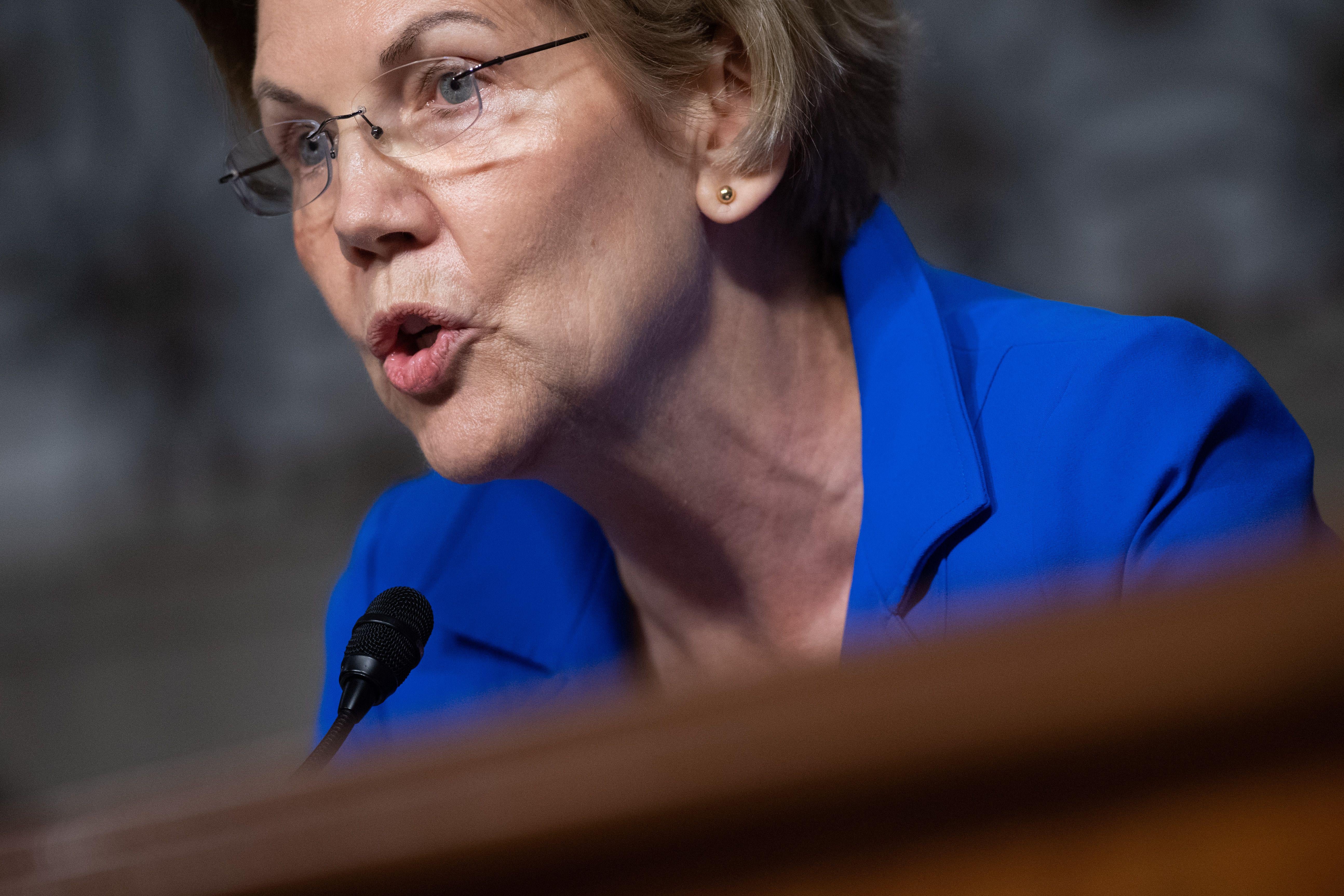In 2003, Elizabeth Warren predicted that subprime mortgage lending would lead to a big economic crash. In 2008, it came true. Now a Democratic presidential candidate, Warren is warning that another crippling economic crisis—this time fueled by rising household and corporate debt—could be on the horizon, unless we (she) take(s) swift action. “Warning lights are flashing,” the Massachusetts senator wrote in a Medium post Monday. “Whether it’s this year or next year, the odds of another economic downturn are high—and growing.”
She’s not the first presidential candidate to predict a looming recession, and she won’t be the last. Back in 2016, then-candidate Donald Trump warned of a “very massive recession” that never happened. And Ted Cruz said a stock market crash was imminent. Neither of those claims has come true. Economic alarmism from presidential candidates is about as common as it is ignored. But unlike other “predictions” based on nothing other than a dislike for the other party, Warren’s claim that she predicted the Great Recession received a “true” rating from PolitiFact. She’d been speaking about debt, risky mortgage lending practices, and the looming housing and financial crisis for years.
Warren’s campaign promises massive reforms for the U.S. economy intended to stave off a recession and improve the lives of working people. Convincing people that the economy isn’t on strong ground could prove difficult, because unemployment recently hit a 50-year low, and the majority of Americans describe the economy as “good” or “excellent.” But Warren is not alone in sounding the alarm. The New York Federal Reserve Bank’s recession probability index, one economic barometer looked to since the 1960s, broke 30 percent in July for the first time since 2009. In March, the U.S. Treasury yield curve inverted—another predictor that’s only been wrong once—for the first time since 2007. In June, consumer confidence dropped to a near-two-year low (though it rebounded slightly in July and remains pretty high). And—as Warren pointed out in her Medium essay—the U.S. manufacturing sector is already in a mild recession after its second straight quarterly decline.
Warren also points out that household debt has surpassed previous records set before the last recession in large part because of stagnant wages and increasing student loan, credit card, and auto loan debt. Corporate debt—particularly lending to companies with already high levels of debt—is snowballing, too. (Former Federal Reserve chair Janet Yellen has raised similar concerns.) “I see a precarious economy that is built on debt—both household debt and corporate debt—and that is vulnerable to shocks,” Warren wrote. “And I see a number of serious shocks on the horizon that could cause our economy’s shaky foundation to crumble.” So it’s not surprising that much of Warren’s agenda lines up with her causes of concern.
Warren didn’t release any major new proposals in her essay Monday, but she did connect the most ambitious of her plans to the problems she points to in the economy. To reduce household debt, Warren has proposed raising the minimum wage to $15 an hour, banning so-called “right-to-work” laws, ensuring equal pay for women of color, and canceling up to $50,000 in student loan debt for 95 percent of the people who have it. She’s also released plans to increase access to affordable housing and to provide universal affordable childcare, policies she said would reduce costs for working families.
Three other proposals also fit within her crisis response plan: imposing rules to limit leveraged corporate lending, investing in green manufacturing, and limiting shocks to the economy by replacing “trade-war-by-tweet” with a—wait for it—“coherent” trade strategy. Oh, and she wants to ditch the debt limit altogether in favor of a system that automatically raises the debt limit to coincide with revenue and spending decisions made by Congress. (The White House and congressional Democrats are currently negotiating on raising the debt ceiling for two years. If they don’t, the government could run smack into the ceiling in September.)
Meanwhile, Warren is still battling it out against more than 20 other candidates vying for the Democratic Party’s nomination. Her warning about a possible recession comes just a week after she released another extensive plan to place new regulations on Wall Street. Ahead of next week’s Democratic debate, where recent polling placed her among the “top tier” of candidates, Warren seems to be directing her message back squarely at her favorite issues of income inequality, Wall Street, and the economy.
